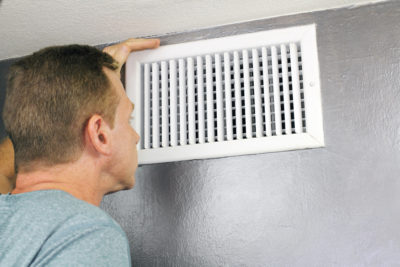Blog
How to Identify HVAC Vents (Supply vs. Return)
You need to have a good understanding of your HVAC system to make sure you can tell when it’s not working correctly. Part of that is understanding what your HVAC vents do and the difference between supply vents and return vents.
This article will tell you everything you need to know about them. So let’s get into it.
The Basics of Supply and Return HVAC Vents
HVAC systems with ductwork use vents to transport air throughout your home. A vent can either be a supply vent or a return vent.
Supply vents push air that’s been conditioned by your HVAC unit throughout your home.
Return vents pull stale air into the ductwork so that it can be reconditioned and circulated throughout your home once that’s complete.
Identifying Supply and Return Vents
Figuring out which of your HVAC vents supply air and which return it is a pretty easy thing to do. Here are step-by-step instructions for figuring this out:
- Turn your HVAC system on and place it in either heat or cool mode
- Allow the system to run for at least 3 minutes
- Place your hand or a piece of paper near the vents that you want to check
- If the air blows out, it’s a supply vent
- If there’s a suction-like effect near the vent, then it’s a supply vent
Where Should Vents Be Placed?
Ideally, you want both types of vents in each room in your home. That way, your HVAC system can be as efficient as possible.
Can You Block a Vent?
It’s generally not a good idea to block your HVAC vents. That’s because these vents need to be able to either push out or pull in air in order for the system to function optimally.
Blocking a vent can impact the flow of air throughout your entire home instead of just the air in the room that the vent is in.
How Do You Know If You Need HVAC Help for Your Vents?
Your HVAC vents will need professional maintenance from time to time to ensure that they’re working the way that they should. Here are some of the top signs you can look for to determine whether your vents need help:
- Condensation forming on the vents
- Inconsistent airflow around the vents
- Uneven temperatures in certain rooms
- Air leaks coming from duct connections
IAQ Can Help You Ensure All of Your HVAC Vents Work Correctly
If you notice some of the problems covered above around your HVAC vents, it’s important to be proactive about getting them repaired. Otherwise, your system’s efficiency will likely decrease – and that could increase your energy bill by quite a bit.
Indoor Air Quality, Inc. makes it super easy to take care of your system’s vents. All that you need to do is get in touch with us and we’ll send over an expert technician to check out your vents and fix any that aren’t working correctly. We provide reliable HVAC service in Highlands Ranch and throughout the Denver Metro Area. Get in touch with us to learn more about how we can help.





